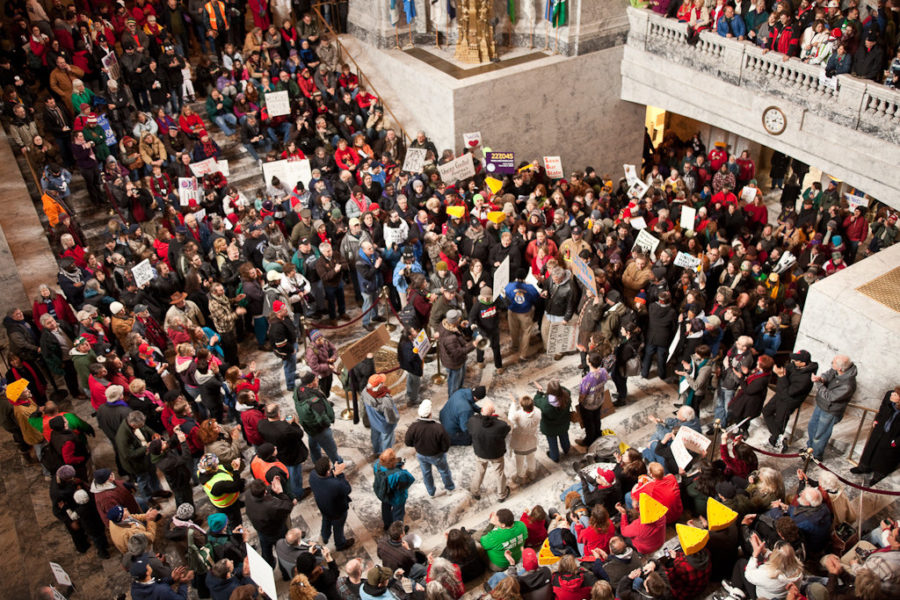Update: HB 1722 made it out of the House Committee on State Government & Tribal Relation on February 22. It will now need to gain approval in the House.
Big reforms often get tested out at the local level before voters feel comfortable scaling up to state and national levels. That’s been the case with voting reform too, where, for example, Portland, Maine, tried ranked-choice voting for years before Mainers adopted it statewide.
A ‘Local Options Bill’ allows localities the freedom to adopt advanced voting systems.
Unfortunately for people in Washington, state law holds localities back from adopting upgraded voting systems that would better serve them. Today, the state’s law prohibits cities, counties, towns, school boards, fires districts, and port commissions from dropping or altering their primaries or adopting ranked-choice voting. That means they’re beholden to the two dominant parties, divisive campaigns, long election cycles, and footing the bill for election costs.
Last year, Washington State legislators contemplated addressing this issue with a “Local Options Bill” to allow localities the freedom to adopt advanced voting systems. The bill garnered fifteen sponsors in 2018—impressive for a new bill—but it didn’t pass out of committee. This session, seven state senators and twenty-seven state representatives have sponsored bills SB 5708 and HB 1722. The Local Options Bill grants governments and voters license to make their own decisions about how to handle local elections, so long as they abide by rules set by the Secretary of State and auditors.
The Local Options Bill specifically empowers local jurisdictions to choose to:
- Eliminate their primary race and instead allow voters to rank candidates in the general election in November.
- Keep the primary but use a “top five” primary instead of a “top two” primary (this addition is an improvement on the 2018 proposal). In a top five primary, voters can rank as many candidates as they wish and the five most popular candidates advance to the general election. In November, voters rank as many candidates as they wish. If one candidate wins a majority of first-ranked votes, s/he wins the seat. If no candidate wins a majority, the least popular candidates are eliminated and their votes get distributed to those voters’ next-ranked candidates until someone wins a majority.
Eliminating primaries could save local jurisdictions the costs of administering the election. It could also shorten the election season and allow voters and candidates to concentrate on November instead of campaigning throughout the spring and summer.
The bill allows for single-winner, ranked choice voting, which can create more positive, issue-oriented campaigns. Having more than two candidates in the November election welcomes more ideas to the general election campaign and gives voters more choice, thereby giving more voters a voice.
The Local Options Bill also opens the door for multi-winner, ranked-choice voting, which can give more voters a voice in local elections, defang the gerrymander, and give outsiders and reformers a chance to win seats and implement changes to reduce the power of big money and special interests.
If lawmakers in Olympia pass the Local Options Bill in 2019 and cities, counties, or school boards could choose to adopt single-winner, ranked choice voting or proportional representation. When they do, other Washingtonians will get the chance to see those reforms in action, which will light the path to bigger reforms. In turn, voters will see the benefits of better voting systems and start to demand broader changes at the state and federal levels, too.


Comments are closed.